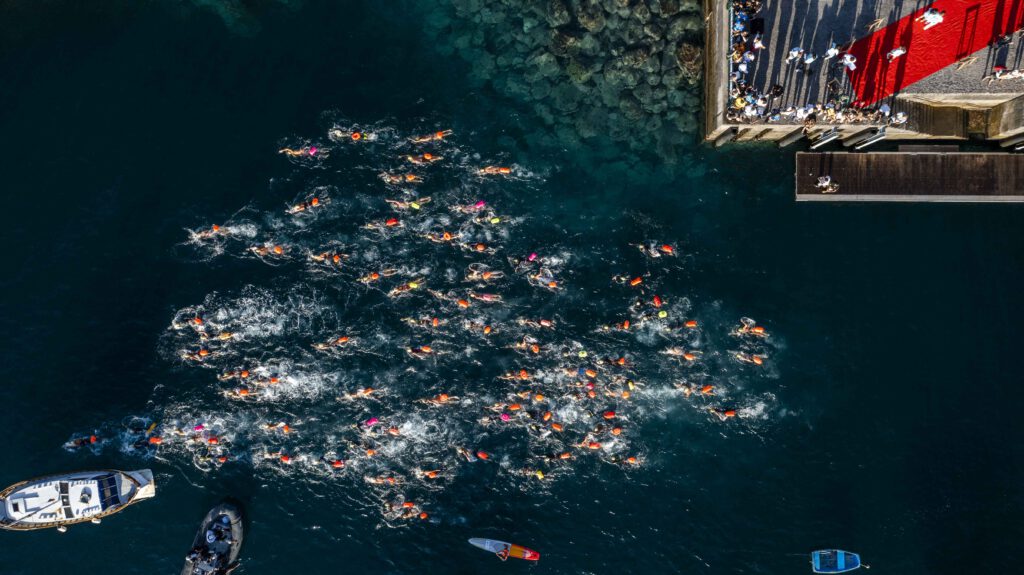
ULTRAOCEANMAN Madeira is renowned as one of the toughest challenges, testing the limits of endurance, strength, and mental fortitude. It is vital to face a challenge like that with a proper training technique. In this article, we will explore key training strategies to help you conquer the ULTRAOCEANMAN Madeira’s demanding 30 km course.
Establish a Solid Base
Building a strong foundation is crucial for long-distance open water swimming. Begin by gradually increasing your weekly training volume, incorporating both pool and open water sessions. Aim to swim at least four to five times a week, gradually extending your distance over time. This base training will enhance your aerobic capacity, preparing you for the race’s challenging demands.
Develop Endurance
To complete a 30 km open water race, exceptional endurance is essential. Incorporate long-distance swims into your training plan, progressively increasing the distance. Start with swims around 10-15 km and gradually work your way up. These longer sessions will acclimate your body to the sustained effort required during the ULTRAOCEANMAN Madeira race.
Simulate Race Conditions
Mimicking race conditions during training is vital for success. Seek out open water environments that resemble the characteristics of the ULTRAOCEANMAN Madeira course. Train in rougher waters, practice swimming against currents, and familiarize yourself with any potential challenges you may encounter. This will help you build confidence and adaptability for race day.
Master Pacing Strategies
Effective pacing is a critical aspect of long-distance swimming. It’s important to find your optimal rhythm and maintain a consistent pace throughout the race. Practice interval training to improve your speed, as well as longer swims at your target race pace. By developing an understanding of your pacing abilities, you’ll be better equipped to manage your energy and avoid early fatigue.
Enhance Mental Toughness
Open water swimming presents unique mental challenges. Training your mind is as important as training your body. Incorporate visualization exercises to imagine yourself successfully completing the race. Practice mindfulness techniques to maintain focus and manage any anxiety or stress that may arise during the event. Developing mental resilience will be invaluable in pushing through tough moments and staying motivated.
Nutrition and Hydration
Proper nutrition and hydration are key to sustaining your performance throughout the race. Experiment with different fueling strategies during your training sessions to identify what works best for you. Maintain a balanced diet rich in carbohydrates, proteins, and healthy fats, and ensure you are adequately hydrated before, during, and after each swim.
By implementing these techniques and dedicating yourself to consistent training, you’ll be well-equipped to tackle the challenges of this demanding open water event. Remember to listen to your body, stay focused, and enjoy the journey as you push your boundaries in pursuit of your goals. Good luck, and see you at the finish line!

